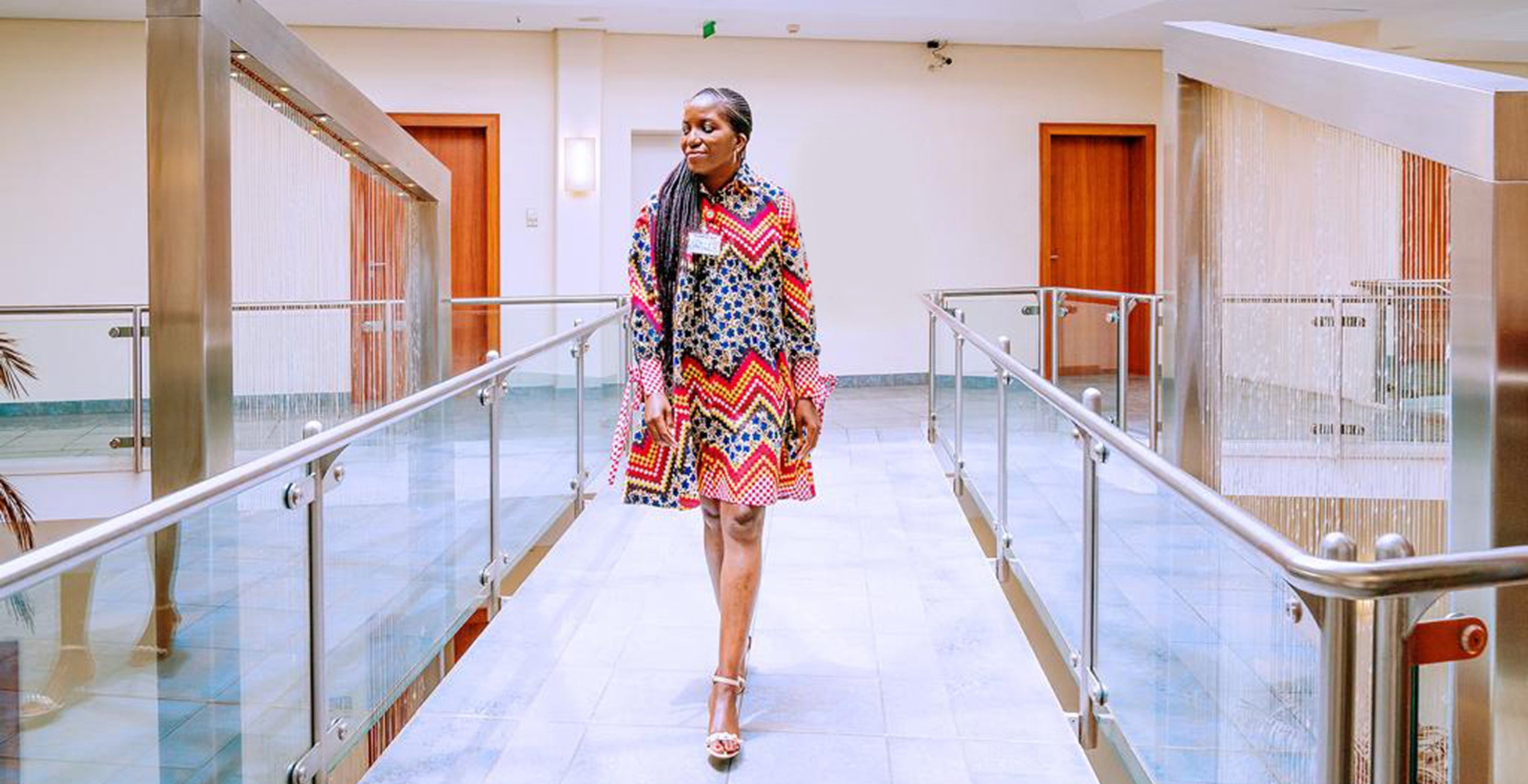Smiling, the Pitt law professor stood from his chair and extended his hand in welcome.
Fatima Waziri-Azi paused, surprised.
“It was strange because growing up in Africa, people don't really do that,” the alumna remembers of her first encounter with John Burkoff, the mentor who would help guide her doctoral studies. “That is not the kind of gesture you get from a man who occupies a position of authority.”
Waziri-Azi was drawn to Pitt’s School of Law, in part, because of Burkoff’s expertise in criminal justice and legal ethics. Working with him, she wrote a dissertation on strengthening anti-corruption efforts in Nigeria, her home country. In 2011, she became the first person to defend her doctoral dissertation in Pitt’s then newly established Doctor of Juridical Science Program. But the warmth and respect she felt during that first meeting also played a factor in her decision to choose Pitt.
Fighting for the respect — and safety — of women has been a hallmark of Waziri-Azi’s remarkable career. Recently, she was appointed director-general of the National Agency for the Prohibition of Trafficking in Persons, a high-level post with the Nigerian government where she is standing up against exploitation, especially of vulnerable women and children, and ensuring that victims receive rehabilitative help. The work is critical, especially in a country where traffickers are known to force women into sexual slavery and sell children into back-breaking labor.
“We all must restrategize and change the negative perception and narratives about Nigeria as the source, transit and destination for human trafficking,” she says.
Even as a young girl, Waziri-Azi recognized gender violence in what she called Nigeria’s mostly “patriarchal” society. Some of it touched members of her extended family. What she witnessed “reengineered” her mindset, she says. She became determined to use the law to make a difference.
After earning undergraduate and law degrees in Nigeria, she served the nongovernmental organization Human Rights Law Services before earning a law master’s degree in intercultural human rights from St. Thomas University School of Law in Florida.
She continued her scholarship at Pitt. She says the law school’s rigor and intense writing demands strengthened her already formidable work ethic and gave her experience in thinking proactively on policy and developing curriculum and strategy papers — all skills she would later use in Nigeria, where she provided information to judges and attorneys about corruption and gender-based violence while researching and teaching in pursuit of anti-corruption and good governance.
Those pursuits continue in her new post, where a strategic priority is to enhance the investigation, prosecution and conviction of high-profile traffickers.
“I believe we need to have more convictions and less impunity, that is what sends a message,” she says. But it's not enough to convict someone. “What actually pinches is when you take their illicit assets away from them. If by some miracle, they evade justice, they know that they will not have access to the ill-gotten property. So, as I focus on high conviction rates, I'm also focusing on asset recovery and asset return.”
Despite the intensity and emotional weight of her work, Waziri-Azi (LAW ’11) remains energetic and positive, with a warmth reminiscent of what she once experienced from her former professor at Pitt. Making a difference in the lives of women and children — and showing them the respect they deserve — is an enduring motivator.
This story is from Pitt Magazine’s Winter 2021-’22 issue, which will be mailed in January 2022.





